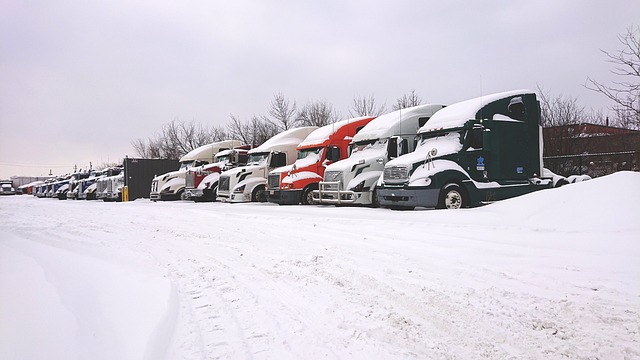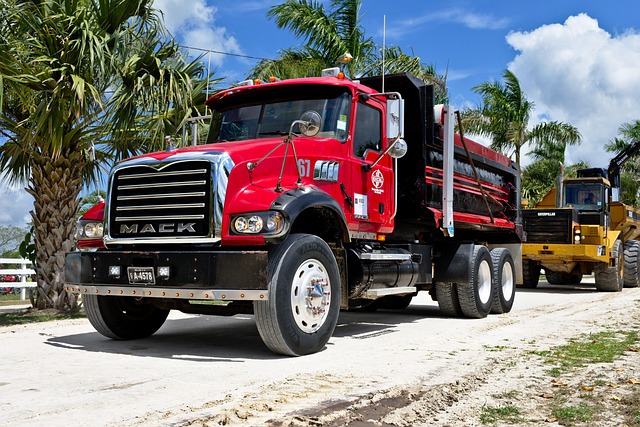Small fleets face significant challenges managing driver-related liabilities due to limited resources and expertise compared to larger operations. Commercial fleet insurance offers tailored liability coverage for accidents, injuries, and legal issues, protecting businesses from substantial financial losses. This specialized insurance includes endorsements addressing concerns like on-the-job injuries, toll payments, and vehicle breakdowns. Effective risk management in small fleets involves strategic initiatives such as driver training, regular assessments, advanced technology solutions like GPS monitoring, and implementing best practices including commercial fleet insurance coverage and Advanced Driver Assistance Systems (ADAS).
In the dynamic landscape of small fleets, understanding driver-related liability is paramount. As operations grow, so do risks, necessitating robust strategies for mitigation and accountability. This article delves into the intricacies of driver-related liability in small fleets, exploring key aspects like commercial fleet insurance, risk management techniques, and best practices for fleet safety. By implementing effective solutions, operators can enhance operational efficiency while safeguarding against potential liabilities. Discover actionable insights to navigate this complex area, focusing on the pivotal role of commercial fleet insurance.
Understanding Driver-Related Liability in Small Fleets

In the realm of small fleets, be it a few delivery vans or a limited number of passenger vehicles, managing driver-related liability is a complex task. These operations often lack the resources and expertise of larger commercial fleet operators, making them vulnerable to various risks. Driver negligence, such as speeding or distracted driving, can lead to accidents, injuries, and legal repercussions, with costs that can cripple small businesses. Therefore, understanding and mitigating these liabilities is crucial for the long-term sustainability and financial health of these operations.
Commercial fleet insurance plays a pivotal role in addressing these concerns by offering tailored coverage designed to protect against such risks. This includes liability insurance that covers medical expenses, property damage, and legal fees resulting from accidents involving company vehicles and drivers. By availing of these insurance solutions, small fleet owners can ensure they are compliant with regulations, safeguard their assets, and maintain operational continuity, even in the face of unforeseen events.
The Role of Commercial Fleet Insurance

Commercial fleet insurance plays a pivotal role in addressing driver-related liability issues within small fleets. This specialized coverage is designed to protect businesses operating multiple commercial vehicles from significant financial burdens resulting from accidents, legal claims, and other risks associated with their drivers. By offering comprehensive protection, commercial fleet insurance can cover the costs of repairs, legal fees, and medical expenses, ensuring that small fleet operators remain shielded from potential financial disasters.
Moreover, this type of insurance often includes specific endorsements tailored to fleet management needs. These endorsements may include liability coverage for on-the-job injuries, protection against unpaid tolls and fines, and even contingency planning for vehicle breakdowns. Such features enable fleet managers to mitigate risks more effectively, ensuring that their operations remain seamless and compliant with regulatory requirements.
Strategies to Mitigate Risk and Enhance Accountability

To mitigate risk and enhance accountability in small fleets, several strategic initiatives can be implemented. One key approach is to invest in comprehensive commercial fleet insurance that covers a range of potential liabilities, from accidents to vehicle damage. This not only provides financial protection but also serves as a deterrent, encouraging drivers to adhere to safety protocols.
Additionally, implementing robust driver training programs and regular assessments can significantly reduce risks. Keeping driver logs, tracking vehicle maintenance, and establishing clear performance metrics enable fleet managers to identify areas for improvement. Technology solutions like GPS monitoring and driver behavior analysis tools further enhance accountability by providing real-time insights into driver activity, ensuring compliance with safety standards and company policies.
Best Practices for Fleet Management and Safety

Implementing best practices is key to enhancing safety within small fleets and mitigating driver-related liability issues. Regular training sessions for drivers on safety protocols, defensive driving techniques, and understanding commercial fleet insurance coverage are essential. Equipping vehicles with advanced driver assistance systems (ADAS) like collision avoidance and lane departure warnings can significantly reduce accidents. Fleet managers should also establish clear maintenance schedules, ensuring regular checks and prompt repairs to keep vehicles in top condition.
Promoting a culture of accountability is vital. Using technology for real-time tracking and monitoring driver behavior can help identify potential hazards and encourage safe practices. Additionally, encouraging open communication between drivers and management allows for the immediate reporting of safety concerns, fostering an environment where proactive measures can be taken to address risks effectively.
In addressing issues of driver-related liability in small fleets, a multi-faceted approach is crucial. Balancing operational efficiency with safety and accountability requires a comprehensive strategy that includes understanding legal frameworks, leveraging commercial fleet insurance for protection, and implementing best practices in fleet management. By adopting these measures, businesses can navigate the complexities of driver liability, mitigate risks, and foster a culture of responsible driving within their small fleets. Commercial fleet insurance serves as a vital tool, offering financial safeguarding and peace of mind in an industry where liability risks are ever-present.
